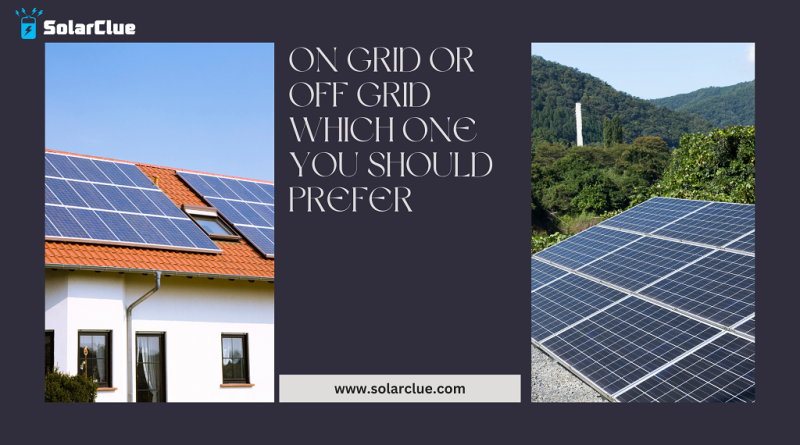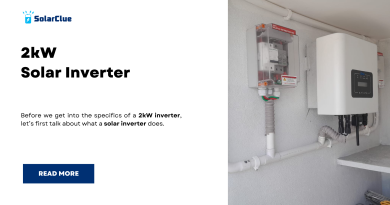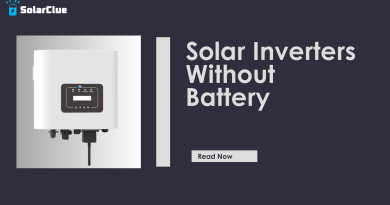On Grid Or Off Grid Which One You Should Prefer
As the world increasingly moves towards enhanced environmental consciousness and sustainability, individuals and businesses alike are taking notice. One area that often sparks debate in the realm of eco-conscious decision making is energy use. More specifically, should one stay ‘on-grid,’ relying on the traditional electricity network provided by energy companies, or does it make more sense to transition ‘off-grid,’ embracing self-sufficiency and renewable energy sources? This remains no straightforward choice, and ultimately the optimum decision depends on several critical factors worth considering.
Table of Contents
Understanding the On-Grid System
The on-grid system refers to a traditional power supply installation, which remains fully, or partially, reliant on an external electricity provider. This system ensures homeowners and businesses have reliable access to power, any time of the day or night.
On-grid systems offer some substantial benefits. Apart from supporting both domestic and commercial electricity needs, these systems require minimal set-up hassles or structural changes to your home or office. Moreover, many on-grid customers have the opportunity to sell back excess energy to their provider, known as the ‘net metering’ process, thereby reducing overall energy costs.
On the flip side, while on-grid systems offer convenience and reliability, they might not be the best choice for those particularly keen on sustainable living. Users are often at the mercy of fluctuating energy prices and can expect occasional power outages. Furthermore, relying on non-renewable power sources contributes to harmful greenhouse gas emissions, posing a considerable concern for those prioritizing environmental responsibility.
Understanding the Off-Grid System
Off-grid systems, on the other hand, refer to setups that generate and store their power. This usually happens through renewable sources like solar energy, wind power, or sometimes even hydro and geothermal power. Such systems often incorporate backup batteries or generators to store surplus energy, ensuring access during night time or less sunny days.
Choosing to go off-grid entails several benefits, especially those centred around sustainability and autonomy. Once installed, off-grid systems can significantly reduce or eliminate monthly utility bills, affording the user considerable savings. Aside from protecting against unpredictable power outages, off-grid solutions foster a smaller carbon footprint, advocating for a more sustainable future.
However, transitioning towards an off-grid lifestyle is not without its challenges. Installation typically requires a substantial initial investment and technical know-how. Furthermore, the energy production of these systems is highly dependent on environmental conditions and might therefore face inconsistency. Additionally, managing power usage becomes a critical part of living off-grid, as you’re no longer able to rely on ‘unlimited’ power from the external grid.
Choosing Between On-Grid and Off-Grid
When deciding between on-grid and off-grid systems, consider your primary goals and circumstances. How much importance do you place on autonomy, carbon reduction, and self-sufficiency? How consistent is the sunlight or wind in your region? What initial budget do you have in hand?
If reliable, 24/7 power is your primary concern, or you live in an area with inconsistent access to sunlight or wind, staying on-grid would likely be a favorable choice. Alternatively, if your focus rests on minimising your environmental footprint and achieving self-sufficiency, investing in an off-grid system may serve as the solution. Teaming this with an energy-efficient lifestyle could enable you to live more eco-friendly and cost-effectively in the long run.
Conclusion
In conclusion, both on-grid and off-grid systems provide advantages and face challenges. Opting for an off-grid lifestyle calls for a radical shift, while staying on-grid often means contributing to greenhouse gas emissions and reliance on energy companies. The perfect balance may rest somewhere in between, such as adopting a hybrid system. These systems confer the reliability of on-grid energy with the environmental benefits and self-sufficiency of off-grid power. Yet, personal circumstances and environmental ideologies should ultimately guide your decision, ensuring a choice that fosters both sustainability and satisfaction on your energy consumption journey.




